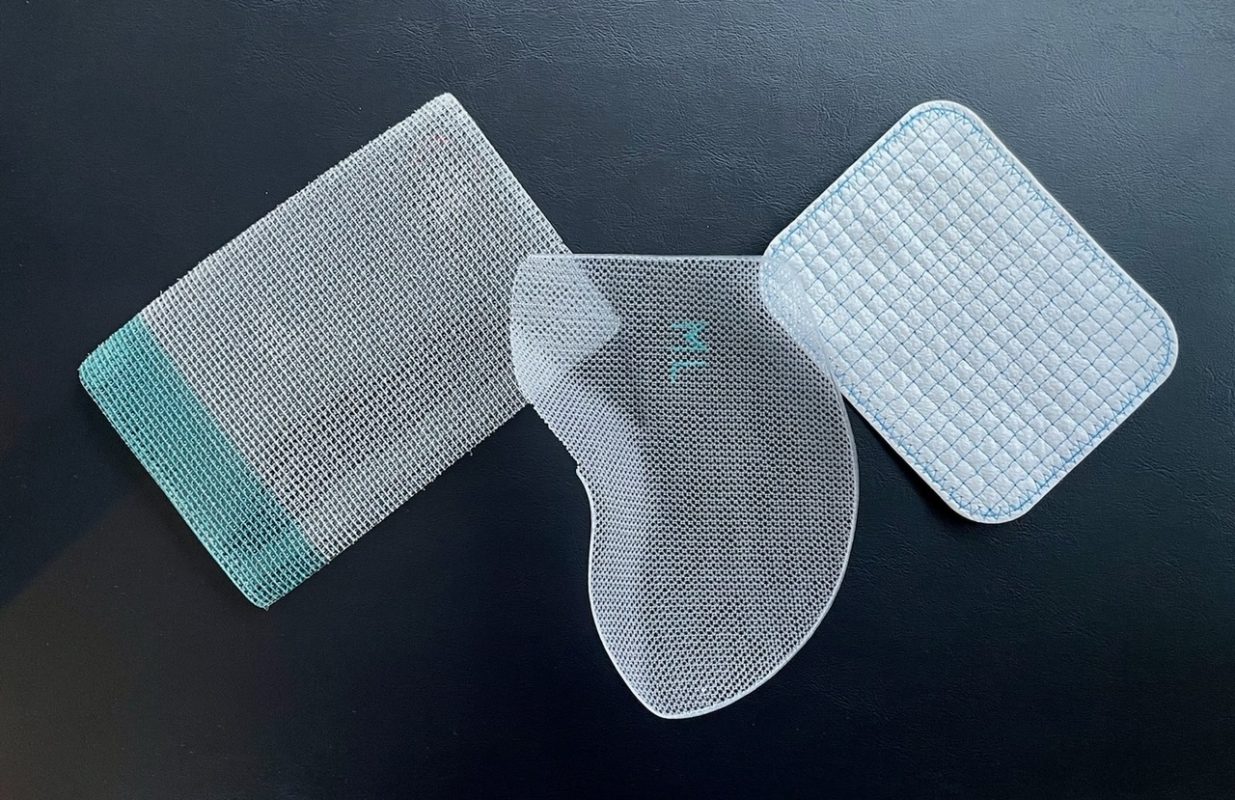
Every year, the NHS performs almost 100,000 hernia related surgeries, with 75% of surgeries using a mesh. However during one of our prosthesis lectures, I was surprised to hear about hernia meshes being controversial. So why would such a popular procedure have a negative reputation?
What is a hernia?
Hernias occur when a hole or a weak spot in tissue allows organs or fatty tissue to poke through, the most common hernia in the UK being an inguinal hernia in the groin, but they can also occur in the abdomen. A polypropylene or polyester mesh can be inserted to provide permanent support to the weakened area, which are thin and flexible and don’t react with the body. Absorbable meshes can also be used, where they provide short-term support while new tissue regrows and repairs the area.
What’s wrong with permanent meshes?
Although most of hernia surgeries go well, many people still experience complications. The most common problems with hernia surgeries are pain, adhesion of scar-like tissue, hernia recurrence, infection, bleeding, abnormal connections between organs and obstruction of the large or small intestine. Permanent hernia mesh surgeries have an additional risk of the mesh migrating to a different place, shrinkage of the mesh itself and risk of the mesh reacting with the body and being rejected. There have also been concerns that meshes can cut into tissue and nerves, causing difficulties with walking and every day life.
International guidelines estimate 1 in 10 people who had a mesh repair surgery will experience significant chronic pain. This means every year, roughly 10,000 people in the UK will suffer from chronic pain due to a surgery that should’ve improved their quality of life.
Benefits of hernia meshes.
Hernia recurrences are a major concern, especially with non-mesh surgeries. The use of a mesh, whether it’s permanent or absorbable, significantly reduces the chances of a hernia recurrence. The reduced likeliness of the hernia developing again is one of the main reasons a mesh is preferred, as each subsequent surgery for a hernia has higher chances of complications, such as more scar tissue forming. Using a hernia mesh also allows reduced surgery time and quicker recovery time compared to non-mesh surgeries.
Alternatives
An alternative to classic hernia meshes can be “hybrid” meshes, such as Ovitex made by TELA Bio. This mesh is made of different materials: the main structure is made of polypropylene, and sheep stomach is used to make an absorbable component that’s mainly collagen. Once the collagen is absorbed by the body, there is still a small part of the mesh that’s left behind to provide structural support, but reduces the amount of synthetic mesh present in the body. This has already been used in the ReBAR Technique (Reinforced Biologic Augmented Repair).
References
Lucian Panait (2021). Inguinal Hernia: To Mesh or Not to Mesh? – Minnesota Hernia Center. [online] Minnesota Hernia Center. Available at: https://mnhernia.com/inguinal-hernia-to-mesh-or-not-to-mesh/ [Accessed 11 Mar. 2025].
Pawlak, M., Tulloh, B. and de Beaux, A. (2020). Current trends in hernia surgery in NHS England. The Annals of The Royal College of Surgeons of England, 102(1), pp.25–27. doi: https://doi.org/10.1308/rcsann.2019.0118
Health, C. for D. and R. (2023). Surgical Mesh Used for Hernia Repair. [online] FDA. Available at: https://www.fda.gov/medical-devices/implants-and-prosthetics/surgical-mesh-used-hernia-repair.
Collinson, A. (2020). Hernia mesh implants used ‘with no clinical evidence’. BBC News. [online] 15 Jan. Available at: https://www.bbc.co.uk/news/health-51024974.
This is a good blog introducing hernia mesh benefits and drawbacks. You create a narrative in this blog, which showcase your reflection at the topic. You could further improve your blog with an extension of your reflection on hernia meshes usage in medicine, what would you change and what is your personal perspective on this topic?